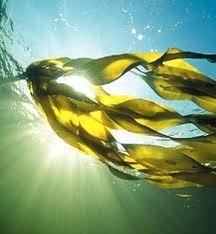
The officials have assured us we're fine, a very safe distance from the radiation that's still emitting from the disaster-hit nuclear plant in Japan, but that hasn't stopped folks around here from taking extra precautions.
People are flocking to local health-food markets such as Mother's and
Whole Foods for sea kelp–both in tablet form and actual food form
(including nori seaweed sheets, dulse seaweed flakes and whole wakame
seaweed)–as it contains iodine, believed to fend off radiation poisoning.
At Mother's Market in Laguna Woods, nutritionist Ren Moore says sea-kelp
products have been “flying off the shelves,” particularly last week
when it was forecast that a plume of radiation was heading this way. She
says the products are “definitely safe,” as iodine is “very cleansing
and can help push out heavy metals that may be in the system.”
]
Though other experts say iodine must be taken in extremely high doses to be effective, according to West Hollywood Patch, sea-kelp tablets average 150 micrograms of iodine, the USDA recommended daily dose. Patch notes that other foods that contain iodine in healthy amounts include yogurt, cow's milk, eggs, strawberries, mozzarella cheese, fish and shellfish.
Some of those in fear have instead grabbed the hard stuff–potassium iodine pills, which are also available at some health-food markets and
contain thousands of times more iodine than sea kelp. But experts have
warned against doing so, as the side effects can potentially include
life-threatening allergic reactions
and damage to the thyroid gland.
So there's the tough answer. Sea kelp probably doesn't have have enough iodine to be effective, but consuming a higher amount of iodine may be unsafe.
More important to remember is that we don't have to worry about this right now. Or, hopefully, ever.

